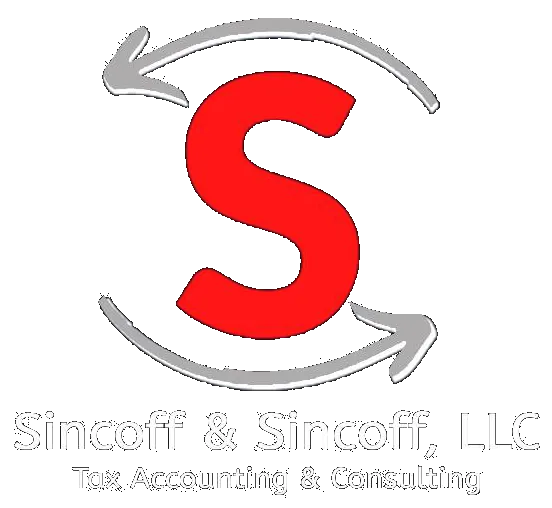Handling payroll taxes is one of the essential responsibilities for any business owner. These taxes not only impact a company’s financial well-being but are crucial for adhering to federal, state, and local laws.
In New Jersey, where strict tax regulations and high operational costs pose unique hurdles, payroll tax analysis is more than just a requirement—it’s a strategic necessity. Expert CPA advice in this area can aid businesses in tackling these challenges, helping them remain competitive, stay compliant, and focus on growing.
Sincoff & Sincoff will help you not only save money, but help avoid costly and unnecessary expenses in New Jersey! Contact Us Today for a FREE Consultation.

Payroll Tax Management Is Critical for NJ Business
Understanding Payroll Tax Analysis and Why It Is Important
Payroll tax analysis involves a thorough review of taxes linked to employees’ wages. This includes deductions for federal and state income taxes, Social Security, Medicare, unemployment insurance taxes, and other local taxes that might apply. Conducting an effective payroll tax analysis ensures accurate calculations, prompt payments, and adherence to all pertinent laws. It also aids businesses in spotting chances for tax savings and avoiding costly mistakes from errors or late submissions.
For example, in New Jersey, employers deal with specific payroll tax issues, like state unemployment insurance (SUI), temporary disability insurance (TDI), and the New Jersey Family Leave Insurance (NJFLI). Understanding these unique requirements is crucial for compliance and optimizing payroll tax processes.
The Value of Payroll Tax Analysis for Business Growth
Improved Cash Flow Management
Payroll taxes form a substantial part of a business’s expenses. Regular analysis helps to fulfill these obligations without disrupting cash flow. Proper planning and management of payroll taxes can prevent financial roadblocks, enabling businesses to channel resources into key areas like marketing, product development, or expansion.
Compliance and Risk Reduction
Not complying with payroll tax laws can result in audits, fines, and damage to reputation. In New Jersey, where businesses must handle multiple layers of tax laws, maintaining compliance is particularly challenging. A CPA skilled in payroll tax analysis can assist businesses in following complex rules, minimizing the chance of costly errors.
Strategic Workforce Planning
Payroll tax analysis gives insights into labor costs, helping businesses make informed decisions about hiring, salary adjustments, and employee benefits. For instance, a retail business in New Jersey dealing with high labor costs might use payroll tax data to evaluate the financial viability of hiring extra staff during busy seasons.
Enhanced Decision-Making
Precise payroll tax data is a valuable tool for strategic planning. By understanding the true cost of their workforce, businesses can make data-driven choices to optimize operations, boost profits, and achieve long-term growth.
Tax Savings Opportunities
Payroll tax analysis can uncover opportunities for tax credits and deductions. For example, businesses might qualify for credits related to employing veterans, providing employee training, or offering health insurance. A CPA can find these chances, aiding businesses in saving money and reinvesting in growth initiatives.
Challenges of the New Jersey Business Environment
Running a business in New Jersey comes with its own challenges. The state’s high living costs, competitive market, and intricate tax structure require businesses to be especially alert about their financial practices. Payroll taxes in New Jersey include federal requirements as well as state-specific duties like NJFLI and TDI, which can be tough to manage without expert help.
Additionally, businesses face frequent changes in tax laws, varying local tax rates, and strict enforcement of compliance standards, making payroll tax analysis an essential part of financial management for New Jersey businesses.
How Expert CPA Guidance Offers an Advantage
In-Depth Local Regulations Knowledge
CPAs specializing in New Jersey tax laws have expertise in navigating the state’s unique payroll tax requirements. They can help businesses ensure compliance with local laws, avoid fines, and optimize their tax strategies.
Tailored Solutions for Each Business
Each business has unique payroll tax responsibilities based on its industry, size, and employee makeup. A CPA can offer custom advice and solutions that align with the specific needs and goals of a business, ensuring efficient tax management.
Saving Time and Resources
Payroll tax management can be time-consuming and intricate. By outsourcing payroll tax analysis to a CPA, businesses can free up valuable time and resources to concentrate on their core operations and growth strategies.
Proactive Planning and Forecasting
CPAs can provide proactive guidance on payroll tax planning, helping businesses anticipate and prepare for changes in tax laws or economic conditions. This foresight enables businesses to stay ahead of potential challenges and capitalize on opportunities.
Improved Competitive Edge
In a competitive environment like New Jersey, every advantage matters. Expert CPA guidance in payroll tax analysis allows businesses to optimize their financial practices, reduce costs, and reinvest savings into growth initiatives. This strategic approach can help businesses outperform their competitors and achieve lasting success.
Case Study: Payroll Tax Analysis in Action
Take a manufacturing company in New Jersey with 50 employees. The company was having trouble managing its payroll taxes, leading to frequent errors, late filings, and penalties. By working with a CPA specializing in payroll tax analysis, the company was able to:
- Detect discrepancies in tax calculations and correct errors.
- Benefit from tax credits for hiring employees in specific economic zones.
- Set up a streamlined payroll tax management system, cutting administrative costs.
- Use the savings to upgrade equipment and expand production capacity.
Within a year, the company saw improved cash flow, better compliance, and a 15% increase in profitability, showcasing the tangible advantages of expert payroll tax analysis.

